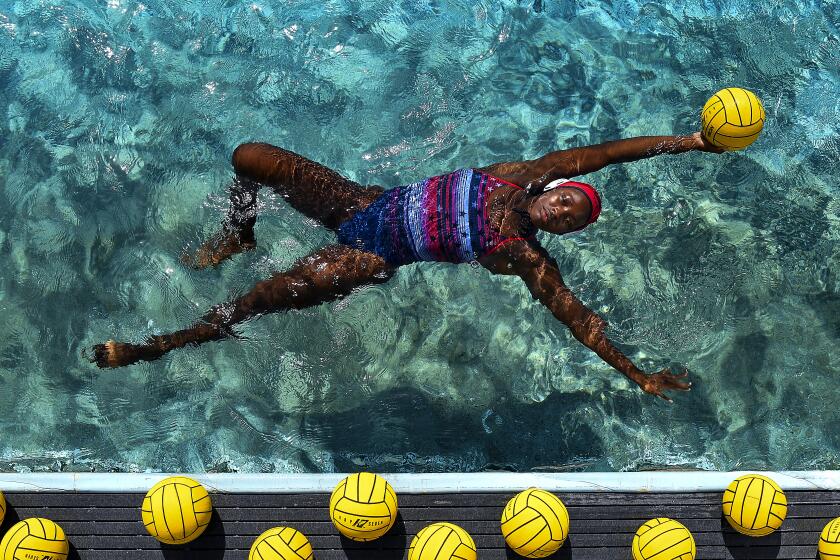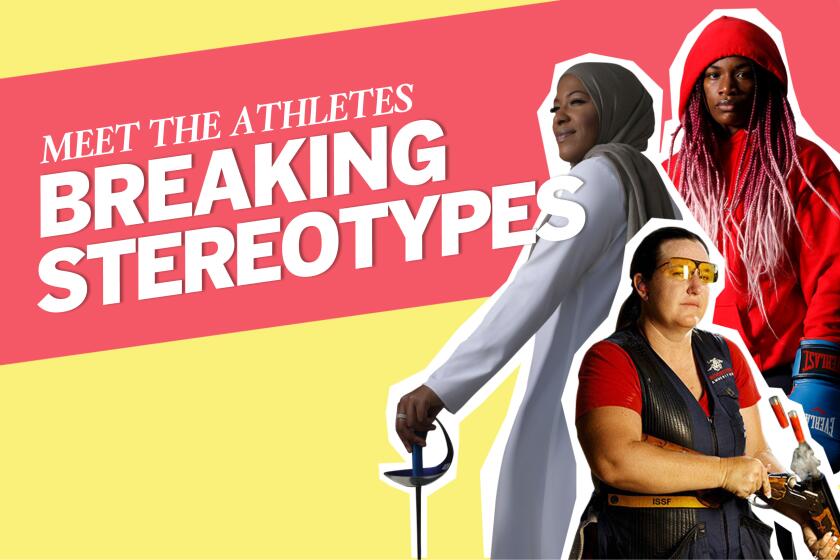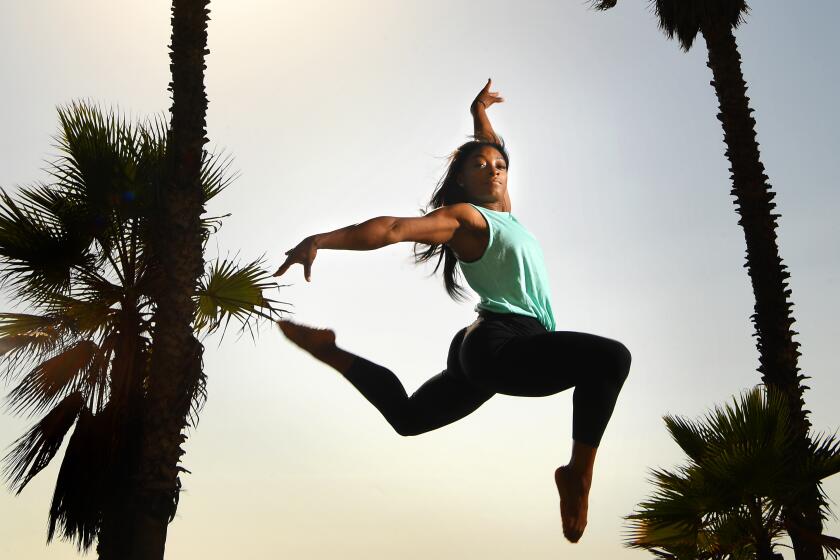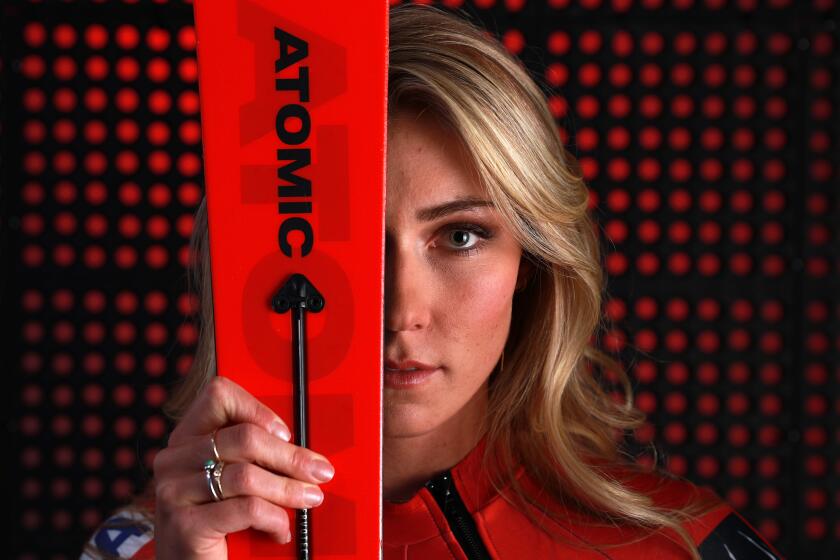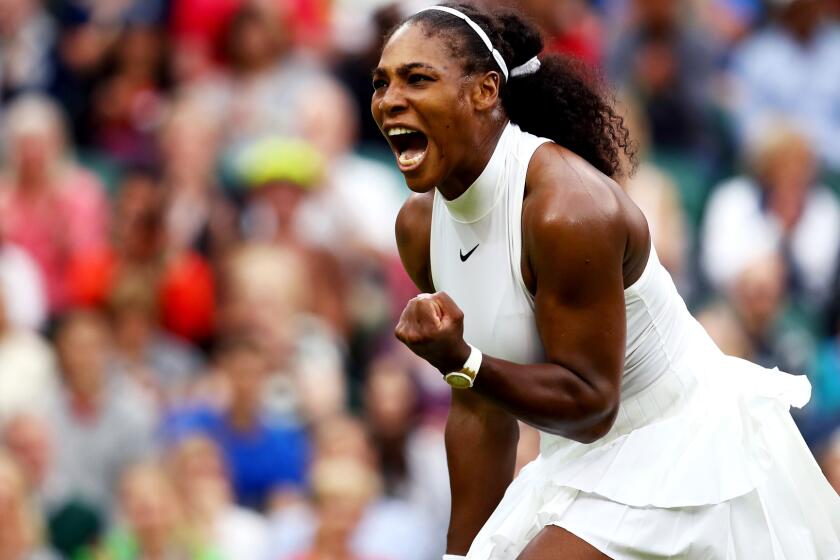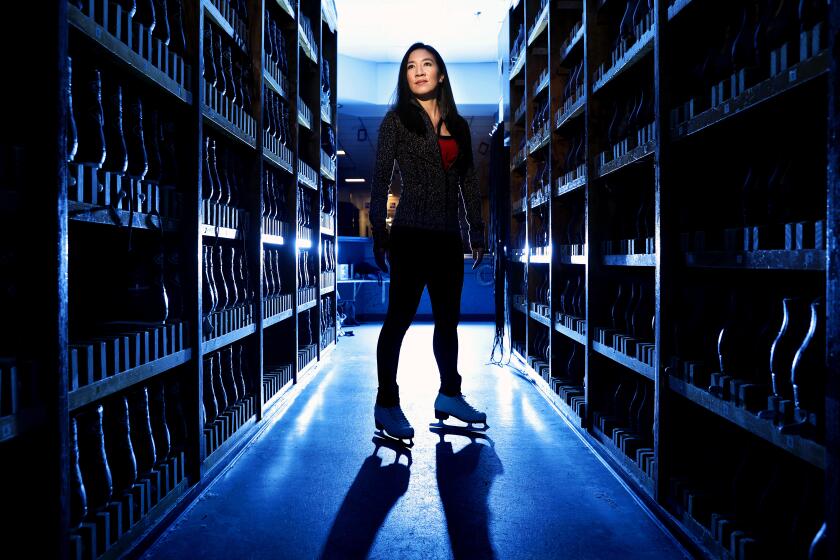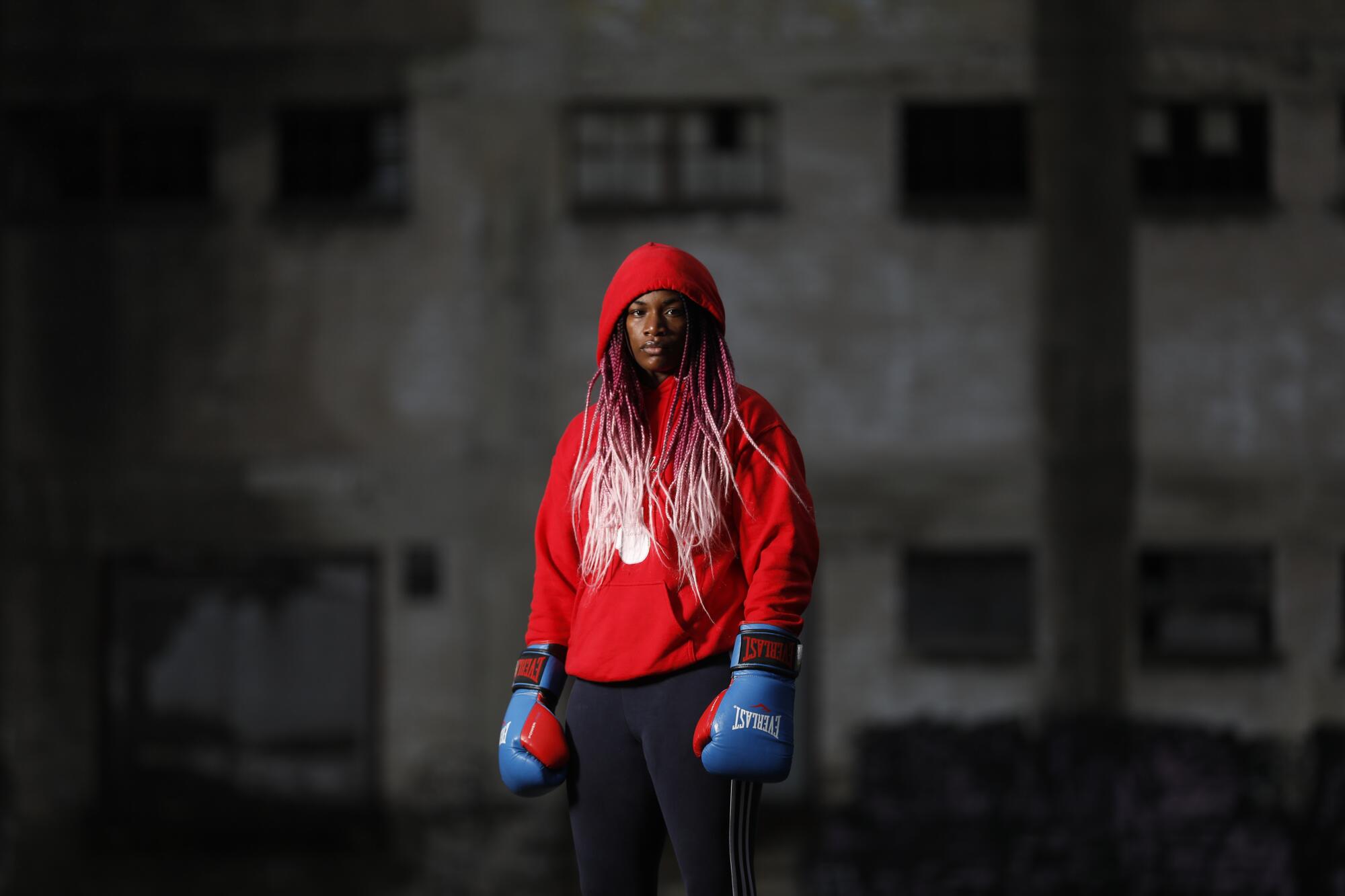
- Share via
Claressa Shields has more world titles and more Olympic gold medals than she has losses in a 10-year boxing career. But her manager, Mark Taffet, says her most impressive performances come not when she’s pounding somebody in the ring but when she‘s counseling in schools.
“Every time we do a fight we do an event during fight week with kids,” he says. “And Claressa just goes and speaks to these kids, and she delivers messages to them that are incredible.”
Messages more powerful and persuasive than her devastating right cross.
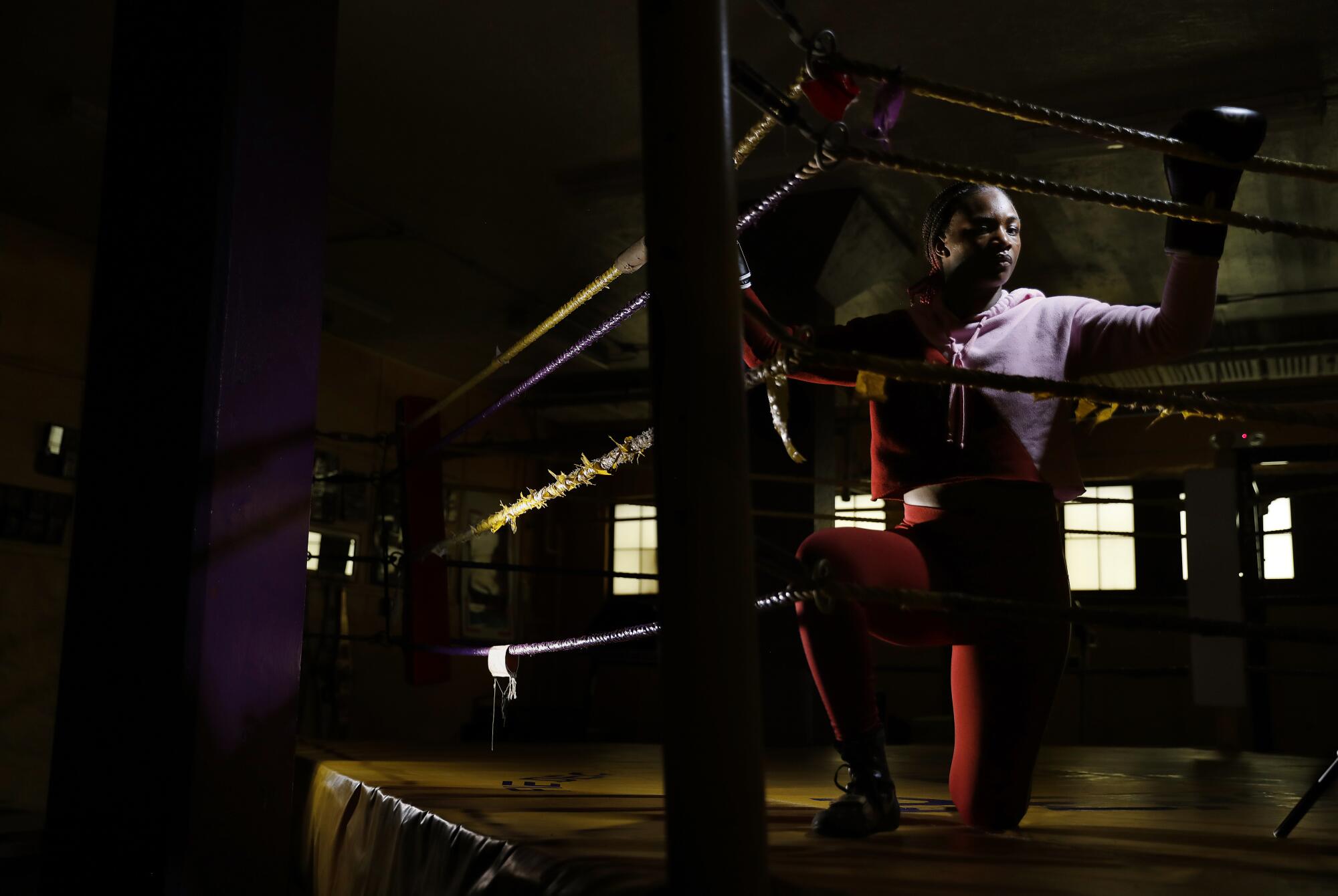
Shields’ father was in prison during much of her childhood in Flint, Mich., where she was sexually abused by her mother’s friend. She was angry, spiteful and seemed headed for more trouble when, at 13, she was baptized in a local church.
One of the few non-Californians on the U.S. women’s water polo team, she was a goalkeeper on the squad that won the 2015 world championship and the gold medal at the 2016 Rio de Janeiro Olympics.
“It really changed my whole life, how I dealt with my anger,” she says. “I was envious of other people who had a good, put-together family. Once I got baptized, it was kind of ‘you know what? God gives you a certain hand of cards and you have to work with them.’ And that’s kind of the mind-set I have now.”
At 24, Shields is not much older than some of the teenagers she visits. But her journey and her success — she is the only U.S. boxer to win consecutive Olympic titles and by her sixth professional fight she had won world championships in two weight classifications — have imbued her with uncommon perspective and maturity.
“Some people look at me as a role model, some don’t,” she says. “But I know that I have a hell of a story. When I go talk to kids, I keep it real. I’m not tip-toeing around. ... I get straight to the point: Be leaders. Don’t be involved in gang violence. Don’t be hanging around the wrong people. We make the decisions for our lives. We’re not a product of our environment. Even though everything around us is chaotic and is terrible, that doesn’t mean that we have to be that way.
“Sometimes it’s hard for kids because they want to fit in and they want to be accepted by their peers. But when you want to be great you’ve got to be different.”
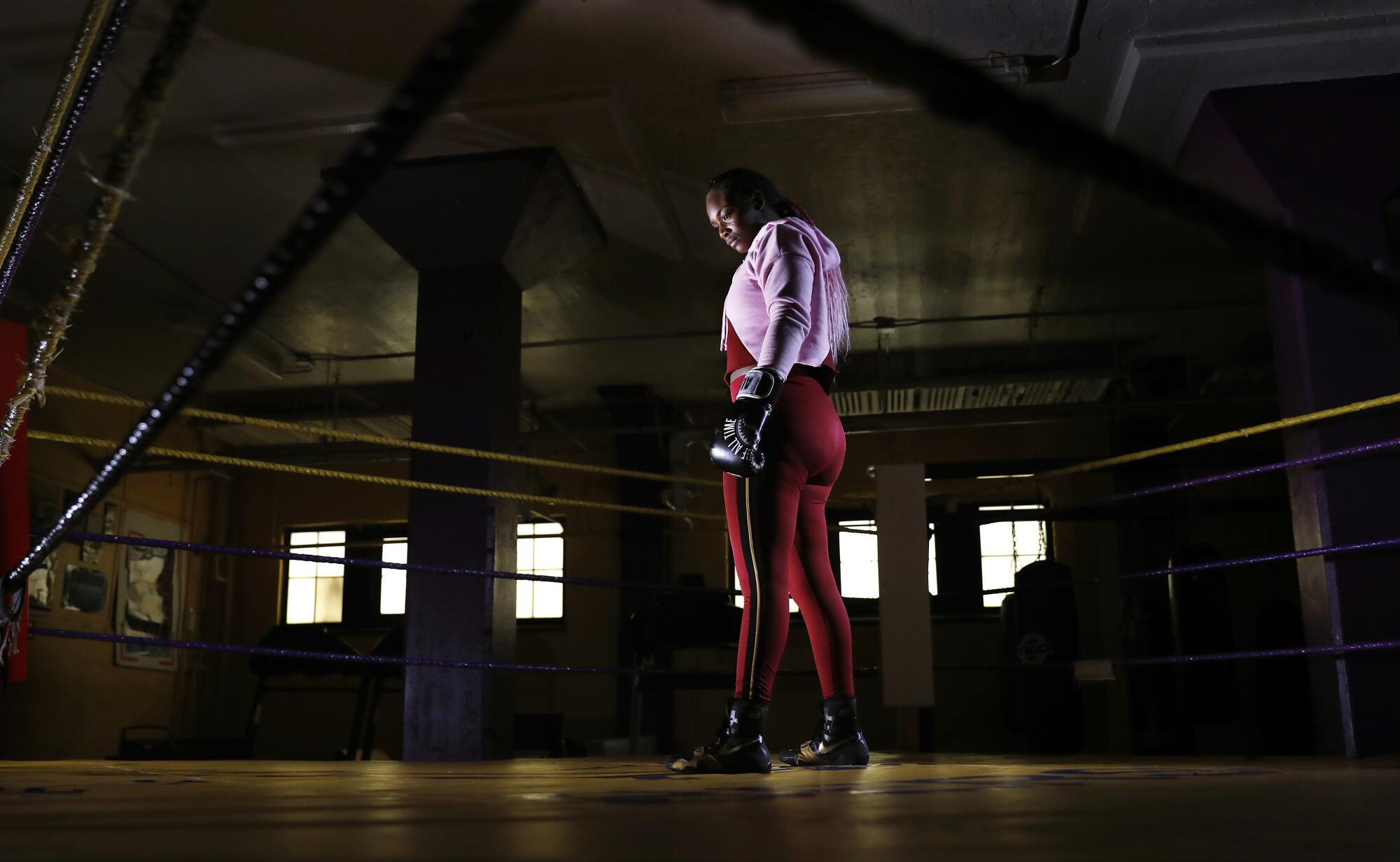
More to Read
Go beyond the scoreboard
Get the latest on L.A.'s teams in the daily Sports Report newsletter.
You may occasionally receive promotional content from the Los Angeles Times.
